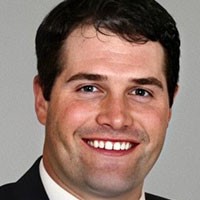What Do You Do When You Owe Taxes But Don’t Have the Funds?
For many people tax season brings the joy of a nice big refund to go out and splurge on something they’ve had your eye on for a long time. On the flip side of the equation are those people who surprisingly, or not, end up owing the IRS money. Not only do these people miss out on the extra cash influx, but they also have to come up with the funds to pay off the extra tax bill.
For some people, depending how high the bill is, they could have to pay even more than just the shortage amount. That’s because many times when people underpay they end up owing penalties for the underpayment. For those who owe a lot of money, those penalties could end up being huge. In fact, the penalties can even be much higher than the shortage.
That’s why it’s always best to try to avoid owing any money to the IRS, especially if you don’t have the funds to pay it off when the tax bill comes due. So what happens to people who can’t pay their tax bill? You do have a few options.
In some cases, it might be a good idea to take out a loan or a line of credit in order to pay off the bill. Of course, you will then be responsible to pay off the loan, so use caution. Another option is to apply for an extension with the IRS. This could buy you a little time to come up with the needed funds. If you need even more time then try applying for a hardship extension, which could give you up to six months to pay it off. You could also ask the IRS for permission to set up a payment plan to pay off the debt in installments.
Whichever path you decide to take, make sure you do something. Don’t ignore the problem or it will only get worse. The penalties will likely increase the longer you wait and the IRS could eventually take other measures or even press charges. So the bottom line is: do something.
Andy Mitts – Host of Blue Wings Rising Podcast
Sports has always been Andy Mitts passion. When he was dissatisfied with the coverage that he was getting, he decided to create his own podcast where he would cover what he wanted. Listen to his story as he chased his dream. Transcript of Andy Mitts – Host of Blue Wings Rising Podcast: Alan Olsen:…
Tara Renze – How to Truly Be Yourself
How can you Become the Best you? Book author, Tara Renze, describes her journey in writing a best selling book on how to become the person you were meant to be. Listen as she tells her story of chasing her dreams and achieving them. Transcript of Tara Renze Interview, How to Truly be Yourself, by…
Eric Ball – General Partner for Impact Venture Capital
Venture capital is a tricky game to play, but Eric Ball has it down to a science with Impact Venture Capital. Since starting the firm, he has been able to assist many successful startups as they venture into the world of business and technology development. Learn how he has found success living the American Dream…
Porter Ellett – Coaches Football with One Arm
His Dream of coaching football caused him to take a much different path in life than he originally intended to take. In this episode of American Dreams, Porter Ellett shares his story of how he came to coach the Kansas City Chiefs. Listen to his inspirational story as he shares how individuals influenced the path…




